Doing the Inner Work, to do the Outer Work

Written by Ellie Lister
Ellie leads the Big Leadership Adventure programme at Big Education. A multi-academy trust and social enterprise whose mission is to rethink and reshape education.
We have spent the weekend working with our 2020 Big Leadership Adventure group. It is always an energising and uplifting experience – as we learn together as part of their journey as leaders who believe in a ‘big’ education that can change the system. The commitment, passion and dedication of this group of 30 leaders can not be overstated. We salute you all!
The overall theme of the two days was Design Thinking – how can we re-imagine practices by using a range of tools which get us to understand problems differently and then go about solving them in new ways? Inspired by the work of Ideo, this powerful methodology has much to offer us in the sector.
As pupils return from lockdown, many more schools are looking to do things differently. Our leaders are all working on Innovation Projects that harness the learnings from lockdown, to help us to rethink and reshape education.
We know that we cannot achieve ‘a big education’ unless our system values and embodies diversity, equity and inclusion. Having some of the sector-leading experts and trainers as part of the cohort gave an incredible opportunity to draw on their expertise and really explore how this is explicitly linked to our work on the programme. We explored the themes of user-centred design, really actually listening to what those with protected characteristics are saying, and creating the spaces where those conversations can happen.
Adrian McLean and Hannah Wilson skillfully created a safe space for participants to learn, challenge and understand. It was so powerful to start with checking our knowledge of the equalities act – what are the 9 protected characteristics and how many can you name? Between the group we got there – but I for one would not have managed to get all 9 on my own.
We were challenged to think about which of these are visible in our organisations. Where are there explicit practices in our organisation in supporting or addressing these protected characteristics? It was clear that for so many of us, there is not an equal balance of focus on each of those within our organisations. There were some fascinating reflections on the ‘emotional tax’ associated with some of the invisible characteristics, for example disabilities that are non visible. Some areas of practice are much stronger than others, and it was powerful and, at times, very uncomfortable to delve into why this is the case. It was also fascinating to reflect on the difference between what is written in policies and what is actually happening which again can expose some uncomfortable truths. Adrian and Hanah recognised this and urged us to “get comfortable with being uncomfortable.” These reflections and conversations need to happen.
A large focus was on encouraging us to look inwards first. “Doing the inner work, to do the outer work.” This means we need to look personally inwards and consider our own perspectives, privilege and biases before we can meaningfully bring that conversation into our wider organisations. We used the Wheel of Power and Privilege as a tool to consider our own identity and experience and as a way to consider what might be going on for others.
We made an interesting link with our concept of ‘making entry’ – the idea that an essential prerequisite of meaningful work together in a trusting relationship, and that this is achieved only through self disclosure and sharing information about ourselves. It raises many questions about what we choose to disclose – how much, about what and to whom. What is clear is that if we do not tell our own story, others will make one up for us. Some of that story is based on what they can see – the visible characteristics – and some about assumptions they make. Whether we choose to inform them further is our choice.
What is also clear, however, is how powerful it is when people are open about aspects of themselves. We heard stories of the impact of staff sharing their sexual orientation with students and the transformation in attitudes this can enable, as well as safe spaces where students were empowered to be openly vulnerable and really challenge a culture of toxic masculinity.
The group all made pledges for actions to undertake and we will hold ourselves accountable for these commitments.
Day 2 shifted us into some practical action in developing our leadership skills – what we call developing ourselves as a ‘leadership artefact’. We passionately believe that being able to clearly and effectively deliver a ‘stump’ speech is a tool in the changemaker’s tool kit. The ability to convince others, create a compelling narrative and inspire action is essential. Our leaders revisited their stump speech they had delivered as part of the application process, redrafted it in light of the philosophy of education module they have completed, and delivered it to colleagues in small groups.
It was an incredible experience, for both those speaking and those listening and feeding back. Drawing on the 4 oracy strands as a framework for listening and observing, each leader then received detailed feedback about the impact their speech had had on others in the group. We were all reminded again of the power of feedback – such an important part of developing our self awareness and understanding the effect our behaviour has on others. We referenced the ever useful Johari’s window model as a framework where we consider what is known and unknown to self and others.
The energy, commitment and positivity from this group of school leaders, after the first week back at school, was quite a joy to experience. The power of the cohort and drawing on expertise and support from the group could not have been stronger. It is a pleasure to work with this group of leaders and the future feels a little brighter in their presence.
Are you passionate about the need for a holistic education for young people? Applications are open for the Big Leadership Adventure – closing at midnight on the 3rd of May: https://bigeducation.org/bla/
Voice Led Early Intervention for Student Wellbeing and Belonging
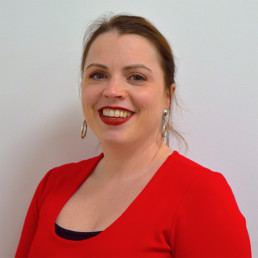
Written by Liz Robson-Kelly
Educator, Positive and Organisational Psychologist, leading expert on Positive Education in the UK.
My research and extensive work for the last 10 years has focused on increasing capacity to prevent young people develop long lasting mental health problems. Listening to and understanding young people themselves, what they want, and need is the key to providing effective early intervention and mental health problem prevention.
The whole ethos of Worth-it Positive Education CIC as an organisation has been founded on co-produced insights and ideas from the young people we work with and support. This passion for empowering young people to have a voice has led me to publish grounded theory research on how coaching and positive psychology approaches can help young people prevent the onset of common mental health problems. Through this research and our work with young people, time and time again they have said that being sharing their stresses and concerns with another young person ‘like them’ and who understands them, and their situation is essential to the way they want to access support. That knowing that there is another young person who can share their ‘experience’ and ‘helpful information’, supports them to improve their mental health and wellbeing.
Looking beyond the experiences of individual young people and focusing on the wider school environment, school connectedness, belonging and positive peer relationships have also been demonstrated to be essential for the prevention of mental health problems in young people. Students are more likely to engage in healthy behaviours and succeed academically when they feel connected to a school and have positive peer relationships. Experiencing positive peer relationships and a sense of belonging at school makes a major contribution to young people’s ability to increase their own wellbeing resources. This then enables them to deal with challenging situations, stress, or pressure and reduce the onset of mental health problems. Empowering students to lead projects and interventions that support the development of belonging and positive relationships fosters wellbeing and is integral to supporting a whole school approach to mental health.
To prevent mental health problems, it is essential we support young people to develop and use their own personal resources for wellbeing. This includes enabling them to identify and access support networks provided by peers or the school environment. This ability to nurture wellbeing resources and increase access support networks is something that can be shared peer to peer. Young people are often more likely to listen to a peer about what helps them increase their own wellbeing than any well-meaning adult.
Combining the importance of offering early prevention and supporting young people develop and share resources for wellbeing, led us to develop our Wellbeing Ambassadors programme. This programme is based on peer-to-peer coaching and positive psychology research. Through testing our approach, gaining feedback from young people, schools and organisations including, CAMHS and local authorities. We designed and shaped an intervention that empowers young people develop their own internal resources for wellbeing and then share them with peers and lead initiatives that support wellbeing to be developed across the school environment. The Wellbeing Ambassadors Programme builds and nurture on positive peer relationships that support the development of belonging and connection at school.
The Wellbeing Ambassadors programme trains young people coaching skills and supports them to become an empowered team of peer wellbeing leaders. They then decide and implement their own wellbeing initiatives that will support their peers to feel included, develop positive relationships and strategies for wellbeing in their own schools. Nurturing peer to peer relationships builds trust and can increase feelings of belonging and connection. This can have a significant impact on supporting the school to become inclusive and built on a foundation of belonging and positive relationships that promote and protect wellbeing.
Young people more than anything need to belong and need strategies to learn how to develop positive relationships, and into positive support networks is more important now than ever. Not only to reduce the negative impact to mental health caused by the lockdowns but to support all young people enjoy and flourish at school.
Find out more
We are pleased to be working collaboratively with Hannah Wilson and Diverse Educators who is championing and sharing her passion for supporting pupil belonging, inclusion and wellbeing. We have come together to share our insights into our Why Have Student Wellbeing Ambassadors? – Webinar.
To find out more about how a Wellbeing Ambassador Programme, can help you support student mental health and wellbeing join our Live 1 hour Webinar on the 27th April 2021 at 11am or 4pm.
Next Steps
To find out more and book your place on the ‘Why Have Student Wellbeing Ambassadors’- Webinar follow this link
https://worthit.org.uk/why-student-wellbeing-ambassadors-webinar/
For more about my work at Worth-it click here.
You’re Not Just Marrying the Person…
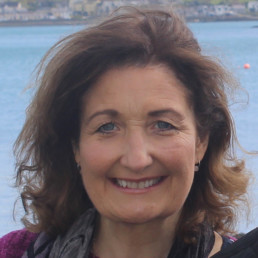
Written by Jackie Hill
An experienced teacher trainer, Jackie is a Founding Fellow of the Chartered College, Network Leader for WomenEdNW and Co-Founder / Strategic Leader for WomenEdNI.
“You’re not just marrying the person, you’re marrying the family and, in this case, an institution” – striking words spoken by Oprah Winfrey to Meghan, Duchess of Sussex in her recent interview. For many couples listening they may well have resonated with them too, in relation to their own particular context and relationship.
As the editor of the chapter on Marriage and Civil Partnerships in the forthcoming book “Diverse Educators: The Manifesto”, I was particularly struck by those words as they appear, in a deceptively neat and brief sentence, to sum up so many of the issues and influences that impact not just on Harry and Meghan, but indeed on many couples when they decide to formalise their relationship. Not many will marry into an “institution” but change that to family business or different culture and you’ll see what I mean.
Of course, for anyone it’s rarely a case of “just marrying the person” and the underlying story is almost always much more complex than what can appear on the surface so, for this chapter, we’re gathering a really broad range of experiences, stories, insights and views about marriage, civil partnerships and, by extension, families – which, of course, come in a wonderful variety of shapes and sizes.
We’ve already got a team of fantastic writers on the case, each working on their contributions and, between them, covering a wide range of issues.
However, in order to fully capture the collective voice of our community, I would still like to get some additional perspectives, particularly (though not exclusively) views from more men across a range of contexts. I’m looking for just a sentence or two expressing a view, or giving an insight from experience.
I’d also be interested to gather perspectives from anyone on divorce, re-marriage and blended families.
So many factors can impact on whether and how a couple may decide to formalise their relationship and for many, their religious beliefs play a large part in this, but can also complicate things when not shared. I’d also be keen to hear from anyone who would like to share any insights and/or experiences relating to this.
The diverse lived experiences of educators are essential elements for The Manifesto in order to produce a solutions focused resource in relation to all the Protected Characteristics – one which will impact on practice, pedagogy, people management and policy in schools and education settings.
It’s understandable that some people may not be comfortable to talk about their experiences in relation to Marriage and/or Civil Partnerships but any insights that are shared will be valued and will help to ensure the collective voice of the community in this chapter is as representative, diverse and relevant as possible (and comments can be anonymised).
If you do have something you’d like to say in relation to Marriage and/or Civil Partnerships, I’d love to hear from you so please DM me (@hill1_jac) or email your comments to hilljac@yahoo.co.uk
The Fallout of ‘That’ Interview
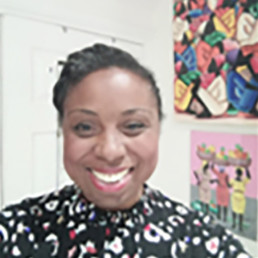
Written by Rachel Clarke
Working with many leaders to improve schools, Rachel is a "passionate, dedicated and inspirational educator, who strives for success with students and educators".
Meghan and Harry’s ‘bombshell’ interview was one that has re-ignited the conversation about racism in Britain; our thoughts about it, our experiences of it and more revealingly, the opinions of those who we call friends as well as those who are in the public sphere.
For me, there were no surprises aired.
That there could be racism in close proximity, or within the institution of the Royal Family, was not a shock. The institution is one that has been predicated upon ideals of ‘god-given’ superiority and has carried out atrocities in the name of Empire and Imperialism. A family member being ‘concerned’ about the skin tone of Meghan and Harry’s baby, again isn’t surprising.
I think the real surprise and revealing element is in the conversation that appears to be widespread on television programmes and social media. The seemingly comfortable way in which people speak to justify, make excuses for and explain away the ‘casual racism’ espoused, through “well doesn’t it depend on how it was said?”, or “we all have people from an older generation who say the wrong thing”, is evidence enough that we as Britons in Britain haven’t spoken about race, or racism enough.
As a Black female, I find the conversations exhausting. Feeling as if I have to justify and prove my experiences doesn’t support me to feel a sense of belonging. Seeing and hearing other Black and Minority Brits do the same thing, further cements the lack of trust I feel and the feeling of ‘otherness’ that is becoming more not less familiar.
Yes everyone is entitled to their opinion. Yes progress in terms of race relations has been made. Yes I often have pride in the country I have been born in and have generational links with that spans hundreds of years. But enough is enough. I am tired. We are tired. Conversation needs to take place where voices of Black and minorities are listened to, not just tolerated. Real commitment to achieving racial justice has to be made if we are to truly live harmoniously. This doesn’t mean challenging conversations can’t and shouldn’t be had but rather, progress has to be made as a result.
Meghan and Harry show young people how to speak their truth and the rest of us that we need to listen with compassion
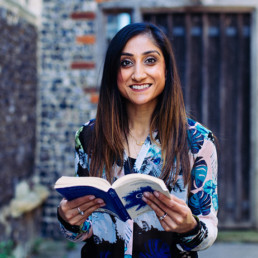
Written by Zahara Chowdhury
Zahara is founder and editor of the blog and podcast, School Should Be, a platform that explores a range of topics helping students, teachers and parents on how to ‘adult well’, together. She is a DEI lead across 2 secondary schools and advises schools on how to create positive and progressive cultures for staff and students. Zahara is a previous Head of English, Associate Senior Leader and Education and Wellbeing Consultant.
In years to come, I’m pretty sure Oprah’s interview with Meghan and Harry will feature on the curriculum in some way: history lessons on the monarchy; English lessons on the impact of digital media; Psychology lessons on trauma; PSHE lessons on familial relationships. At the moment, especially in light of Piers Morgan’s resignation from Good Morning Britain, ‘freedom of speech’ is again up for debate, probably the biggest debate on the matter since Trump was removed from Facebook and Twitter. It’s uncomfortable, yes. But, I see it as an opportunity. It’s an opportunity to positively engage with the Teacher’s Professional Standard regarding the expression of personal beliefs. By speaking their truth, their lived experience, Meghan and Harry have shown young people that we can have personal, uncomfortable conversations around race, equity and the status quo with grace and integrity. And, if I was still in the classroom, I would see it as the best environment to teach young people how to have these personal discussions with dignity, compassion and empathy.
After watching the interview a few Mondays ago, I went to bed thinking, how brave and how graceful. I had listened with compassion, empathy and welcomed what seems to be a turning point in the expression of lived experiences and truth. Tuesday morning, I turned on the news, and it felt like I’d watched a completely different version to the journalists before me. In many ways that’s a good thing, opinions differ and that’s how we learn. However, a rising and ongoing problem with social and digital media is a lack of knowledge around how to manage a discussion. I’d like to think the majority of people know how to frame an ethical, written response whether that be in the form of a tweet, comment or direct message. But the overwhelming rise of keyboard warriors, online bullying and trolling is doing more to polarise our society than unite. What’s worse is that students are surrounded by it 24/7 on their phones, iPads and on the TV – more often than not without context or an understanding of how to think about it. Unfortunately, Facebook and Twitter have yet to introduce some form of workable regulation to prevent the rise of anxiety, fear and mental health (we all know they can do more and should do more). Until they do, I think school and the classroom are the best place to nurture an environment where students can have these open, uncomfortable conversations in a safe and equitable environment.
How do we do this? How can teachers have uncomfortable conversations around race, equity and truth in the classroom?
Looking back on my time as a South Asian, Muslim, female head of department, leader, teacher, manager, mother, daughter, sister, I always shared my identity in an honest way, to give my students perspective and context. I shared stories and my viewpoints framed by who I am and my lived experience. This then gave my students the confidence, the model to share their own truth. Modelling is key here, and dissecting Meghan’s approach (ever an English teacher!) to sharing her truth is a lesson in how to share your truth with context, integrity and reason.
Managing those stories and lived experiences is a challenging and scary responsibility for a teacher. The amount of times I ended a lesson, heart racing, from the classroom worried about a parent calling, a colleague challenging my approach on discussion is insurmountable! Equally, I walked away fulfilled. I’d created a safe space that gave students the confidence to share, challenge, agree and disagree with one another. Did it always end well? No, of course not! But it always, eventually ended with respect. That doesn’t happen on Facebook, and I’m not sure it can. If we integrate compassion, listening and equity into our school ethos and classroom culture – just like Oprah! – we can absolutely have moral, ethical and difficult conversations around race, status and the world to make learning that little bit more purposeful.
What is there to discuss?
Meghan and Harry made it abundantly clear on the differences between the institution and the family, and I came away from the interview thinking how multifaceted the dynamics of the Royal Family are – as a job and as a family member. This is a discussion I would love to have in the classroom.
The differences in British and American culture shined through Meghan and Harry. Meghan quite rightly spoke about the change in environment, politics, her identity as a career woman almost changed over time. Harry said meeting Meghan helped him realise he was trapped in a system. Discussing these issues with compassion and empathy can teach young people so much more about ‘real life’ than any careers lesson.
Is it ok for a white man to so out rightly defame a woman of colour? Or maybe people in class don’t think he was defaming at all? What is there to learn and unlearn here? Use the works of Rachel Cargle, Dr Shona and even Edward Said to start a conversation.
With all of these topics, it’s important to teach students that we are all entitled to an opinion, but not one of hate and plain nastiness. The presence of compassion in discussion is quite possibly what marks a successful and valuable conversation.
Will we, as professionals, make mistakes? Of course! Will we come across barriers at school? Absolutely. Should that silence or limit the space for these conversations? No. If the dynamics between digital media, TV, the Royal family and Meghan and Harry’s transparent honesty have taught us anything, it’s that we need to share our lived experiences. More importantly, we need to work together to create a global community that enables them. And, I think the classroom is the best place to start.
Gender is “wibbly-wobbly” and “timey-wimey”, and gloriously so
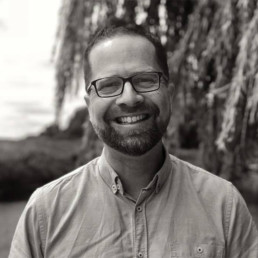
Written by Matthew Savage
Former international school Principal, proud father of two transgender adult children, Associate Consultant with LSC Education, and founder of #themonalisaeffect.
David Tennant’s regeneration of the Doctor, in exploring the conceptual complexity of time, explained to Sally Sparrow in 2007’s ‘Blink’, “People assume that time is a strict progression of cause to effect, but actually from a non-linear, non-subjective viewpoint, it’s more like a big ball of wibbly-wobbly, timey-wimey stuff.”
As the father of two transgender young adults, and a school leader of two decades who has worked with and supported hundreds of children and young people questioning, openly or indirectly, their gender or sexuality, I have increasingly learned that gender identity and expression, sex and sexuality, are no less “wibbly-wobbly” or “timey-wimey”. Indeed, the more we back them into a binary backwater, the less we will understand, respect and celebrate the rich diversity of the Genderbread Person who makes us who we were, who we are and who we will be.
My youngest child, Jack – born AFAB in 2001, identifying as queer when adolescence first hit, as dysphoric shortly afterwards, and as transgender when the adolescent rollercoaster was well underway – at 19, now counts his trans identity as but a tiny fraction of who he is. To him, he is an artist first and foremost; a gay man; a recipe non-conforming chef; and many other identities besides, like all of us. But just as he happens to be a trans male, he obstinately and understandably ticked “Male” as his sex on the recent UK census, even though his first gender reassignment surgery is still a couple of months away.
My eldest child, however, born AMAB in 2000, has recently come out publicly as trans-feminine non-binary, and, about a year previously, as “obnoxiously bisexual”. In doing so, she has embarked on a journey both of discovery and also of worn, lived and breathed gender identity and expression. She is as uncertain about her precise route and destination as she is certain both of her pronouns (she/her, or, at a push, they/them) and also of her name, Phoebe. With her bravery has grown yet further my awe and humility, and, with her wisdom, so also my desire to learn, and to continue learning.
Just as Jack has now acquired the toxicity of male privilege and the pungency of male bathrooms, so has Phoebe gained (bizarrely conditional) access to misogyny, gender inequality and an increasingly unsafe society. Both are emerging into an adult world whose hostile environment permits so many of those who know nothing and represent no one to speak loudest and most hatefully. Much as I love both my children unconditionally (what is conditional love, after all, but something hateful dressed in love’s robes?) and beyond words (even though, as an English graduate and teacher, and wannabe writer, words are my thing!), I fear for their futures.
As a result, I want to do everything in my power, heaping every ‘Teaspoon of Change’ and feverishly flying Maathai’s ‘hummingbird’, to help reshape our world, one which they have the bravery and beauty, but not the obligation, to transform, into a nurturing and safe space: for Jack, for Phoebe, and for every transgender, non-binary and gender non-conforming child, young person and adult in this rainbow realm.
In a few days, I will be delivering a presentation at ECIS’ “Diversity and Belonging” Leadership Conference 2021, entitled, “A Principal’s Journey: what I learned about inclusive school leadership from my transgender son”. The abstract argues that, “to identify as LGBTQ+ whilst studying at an international school can present a unique set of challenges, rendering the student especially vulnerable to mental ill health, poor wellbeing and disrupted learning”.
And I will aim candidly to share my experience as the proud father of a gay, transgender child, and how it has taught me to be a truly inclusive leader. But, in reality, this is Jack’s story, and it needs to be told. I am not a religious person (Jack and I both entered “Dudeism” on that very same census!), but Phoebe and Jack are miracles; and miracles deserve to be shared, as far and wide as possible. If I could reach the Doctor’s next regeneration, I feel confident they would share it wherever the Tardis can travel.
Telling it Like it is: Decolonisation is Not Diversity
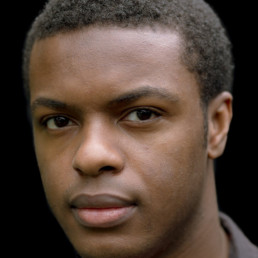
Written by Tre Ventour
Northamptonian writer-poet, educator and curator, whose work has often revolved around arts, Black history and issues of race and social justice.
Previously published in Northampton Chronicle [edited]
Since the Murder of George Floyd, there has been renewed interest in Education to decolonise the curriculum, but I have so often seen this term decolonisation lumped with Diversity and Inclusion [D&I].
Movements to decolonise curricula have been around for years but progress has been little. To put more Black and Brown authors on course reading lists is simply diversity. And as Sofia Akel writes, “diversity can still exist within this western bias.” D&I and decolonisation are not the same. Academic Kavita Bhanot states that “the concept of diversity only exists if there is an assumed neutral point from which ‘others’ are ‘diverse.’” So, in responding to the Black Lives Matter movement, diversity can only exist in proximity to White people because diversity is “the new corporatized version of multiculturalism” and what we should be exploring is decolonial thought.
In order to understand decolonisation, we must look at colonialism, specifically how it was more than the brutalisation of a set of peoples and cultures. It also includes intellectual genocides through knowledge production (i.e the erasure of African history), or if you want the jargon, epistemic violence. Epistemology is the theory of knowledge, so epistemicide is in reference to a violence committed through knowledge. This combined with the codification of White western European thought into our structures, very much a by-product of colonial epistemologies, is what we are living with today. Meaning these codifications have also centralised White western experiences and ways of thinking/acting as the universal norm, with Dr. Shona Hunter describing Whiteness as “the ethos of the impulse to govern. … it is not just that whiteness is sameness. It is the generalizing universalizing impulse, the impulse to have power over life, the ultimate controlling impulse.”
Sofia Akel also says “decolonisation typically refers to the withdrawal of political, military and governmental rule of a colonised land by its invaders. Decolonising education, however, is often understood as the process in which we rethink, reframe and reconstruct the curricula and research that preserve the Europe-centred, colonial lens.” So, this is something undiscussed in just putting ‘diverse authors’ on reading lists. Prof. Gurminder Bhambra and colleagues believe decolonisation should provoke a change in our thinking about the world – where racism, empire and colonialism are placed at the centre and positioned as objects around which our present world is shaped.
During the Labour Party’s Black History Month debate in October, the term decolonisation was contested by members of The Government. Bhambra and colleagues think that “one of the key challenges that decolonising approaches have presented to Eurocentric forms of knowledge is an insistence on positionality and plurality.” This means the conflicting different stances that can be taken in relation to arguments about decolonial thought. One such example could be to look at how colonialism is discussed in geographies situated in the Global South compared to the Global North(west). On a personal note, to me decolonising the curriculum could begin with looking at what epistemic violence looks like in STEM subjects. We could start by interrogating our very language in relation to Whiteness, (terms like East and West) and how the words and terms we use are vital to how we relate to our identities, communities and each other.
Since the 2020 anti-racism resurgence, there’s been much debate about White privilege, a notion that has a long history in print with work having been done by thinkers, including WEB DuBois, Kalwant Bhopal, Peggy McIntosh, Theodore W. Allen, and more famously in the mainstream with Reni Eddo-Lodge. In our want to decolonise, it would be of value to also critique Whiteness, especially by looking at the work of Black and Brown authors, since Whiteness is often better critiqued from those outside of it. If we look at the current colonised curriculum as a symptom of White supremacy, we might be able to change our thinking beyond individuals. Just as Charles Mills writes, “unlike the currently more fashionable “white privilege” white supremacy implies the existence of a system that not only privileges whites but is run by whites for white benefit.”
So, when we think about decolonisation, we must the consider language. So, here we begin to see that D&I and decolonisation are different, and it’s often infuriating to see them lumped together. In admitting school, FE college and university curricula are colonised, we must then see how our education system is complicit in White supremacy. The Murder of George Floyd was a wakeup call for many. Movements to decolonise the curriculum have been around for decades and this is simply the latest chapter in a much longer, subtler history. Decolonise, not diversify, and with universities as well, in the tiger’s mouth of Coronavirus and students being fed a colonised curriculum in the White academy, you really have to ask, what exactly are students paying for?
Antisemitism Today
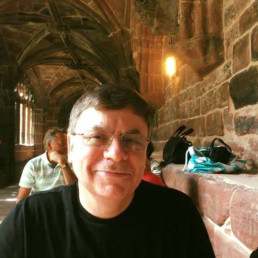
Written by Freddy Naftel
Speaker, teacher and lecturer at Holocaust Enrichment Education.
My Mother and Grandparents were refugees from Nazi Germany, my Great-Grandmother spent several years in a concentration camp and survived, my Great Aunt and Uncle both perished in Auschwitz and I have been the victim of antisemitism both at school and in my professional career as a teacher. I have experienced prejudice indirectly, whether through ignorance or genuine hatred and yet very little appears to have been done to improve matters.
Prejudice and Racism in any form is totally abhorrent and prevents society from accepting that all people are equal, regardless of their colour, creed, disability or sexual orientation. The words “Islamophobia” and “Homophobia” are by now well known but “Judeophobia” less so. Why hasn’t this expression appeared in the media alongside the aforementioned words? In any case, “phobia” means a fear of something, not necessarily hatred, even though fear stems from ignorance which can then lead to prejudice.
It is fair to say that antisemitism is thought of as a “Jewish problem” and therefore can only be fully understood and dealt with by people of that faith, which of course should not be the case. I have noticed far too often that antisemitism is pushed under the carpet and that the fault lies with Jews themselves, as if they deserve it. There are those who believe that The Holocaust was something just waiting to happen and that Jews brought it upon themselves. Others have said that Hitler failed to achieve his aim and that six million wasn’t enough. Holocaust denial has continued to grow despite overwhelming historical evidence to the contrary and conspiracy theories have doubled in recent years. The Jews have been blamed for everything including 9/11, Brexit, the Grenfell Tower tragedy and now Coronavirus and when members of a certain political party reinforced these views, antisemitism became even more prevalent.
With views like these and with little chance of the media coming to our defence, as antisemitism is not generally seen as an issue commensurate with anti-Islam or even anti-gay propaganda, we are constantly relying on organisations such as Campaign Against Antisemitism to speak up for us, often with successful results. Antisemitism is now found in academic circles, particularly at universities, where Jewish students have been made to feel unwelcome and where some lecturers have actively engaged in antisemitic rants, with the authorities seemingly unwilling to act accordingly.
This is why for the past 10 years, I have been visiting schools up and down the country, delivering presentations on Judaism, The Holocaust and Antisemitism from a very personal point of view. By necessity, I have continued delivering my talks virtually, reaching the USA and Australia in the last few months. The lack of knowledge about the true facts of The Holocaust and Antisemitism have been a revelation for many students, despite the mandatory study of this period of history in schools. It is no use skimming over the surface where this is concerned and in fact, there can never be enough Holocaust education. Many of us who study and teach about this cataclysmic event are in agreement that nothing should be hidden from young people. This is especially important when we have seen similar events occuring in countries as diverse as Rwanda, Darfur, Bosnia, Roumania and North Korea. We are now seeing the “re-education” of Uighur Muslims in Chinese concentration camps and even the Jewish way of life is threatened in China.
The way I see it, young people are our main hope and their reactions to some of the stories I relate express shock, outrage and a willingness to speak out. Students have told me that they agree that education is the way forward and they are beginning to understand that centuries of hatred have made us that much more determined to stamp down on this scourge of society.
Unfortunately, some schools believe that having a Holocaust survivor come into school once a year is sufficient enrichment for the study of The Holocaust, in effect sidestepping the growing problem of contemporary worldwide antisemitism. Yes, we should remember the experiences of those people who survived unimaginable horrors but The Holocaust itself did not necessarily teach us the right way forward, as exhibited by the actions of the aforementioned countries.
We must never forget what happened and we should do all we can to fight prejudice as a uniform body.
How Can We Create a Curriculum that is Inclusive of Queer Theory?

Written by George Hayward
(he/him), English Teacher in East London, LGBTQ+ Advocate.
During my time as a student, I often felt a lack of inclusivity in the curriculum I was studying. Reading great classics and beloved page turners such as To Kill A Mockingbird and Lord of the Flies, I found myself wondering why none of these stories were about people like me. When I reached university, I discovered Queer Theory and I was mindblown. Not only were there stories about people like me, but there were academics studying and rereading the texts I grew up with and held dear through a lens of queer understanding. One such text was Robert Louis Stevenson’s The Strange Case of Dr Jekyll and Mr Hyde. I had the opportunity to study these readings during my time at university, so when the opportunity arose to deliver a lecture on it at my school in East London, I was overjoyed. While planning the session, I drew upon the essays and research I had from my undergraduate degree, revisiting the work of prominent theorists such as Elaine Showalter, Judith Butler, Eve Sedgwick and Michel Focault. The most extensive in relation to Jekyll and Hyde being Showalter’s paper Dr Jekyll’s closet.
Queer Theory aims in principle to challenge heteronormativity: the assumption that heterosexuality is the default state of being. It digs into the structures of understanding within art, literature and society and dismantles them. This is an important area of theory as it provides visibility. It allows students of all backgrounds and identities to see themselves in the curriculum they study. It shows them that they are seen and that different people exist. There is a lot of talk about ‘acceptance’ of LGBTQ+ peoples and while acceptance is a great first step, what we need is celebration and understanding. The teaching of Queer Theory and narratives provides this understanding and promotes the celebration of all our students and their identities. It promotes a culture of inclusive allyship and support, where students, staff and their families from all walks of life can lift each other up and be their true authentic selves. All our students deserve to feel they are lifted up in a space where they are safe and important.
The session was received well by staff and students alike. I was able to offer the session twice, firstly to the staff of the English department and secondly to our year 10 students. Staff were engaged with the topic and felt that Queer Theory provides another framework of understanding to utilise in our classrooms. It provides another tool in our analysis toolbox to dig deep into language and encourage our students to be critical thinkers. Similarly, students in my year 10 class that attended the session found the subject refreshing and interesting. I found that while Queer Theory and readings may seem oblique to some, students and staff alike were able to engage with the topic and take away some food for thought. The opportunity to deliver the session was incredibly fulfilling for me on a personal level and it is my true belief that the teaching of these theoretical frameworks is of benefit to every student. I believe it is crucial to foster this culture of inclusivity and celebration for all our learners and I hope that Queer Theory will be a valuable step on this journey.
An African Teacher’s Experience of a British Classroom
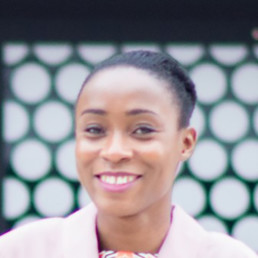
Written by Chinwe Njoku
Qualified teaching professional with a background in Engineering. I have written three books related to the education space (Good Morning Year 11, Raising an ‘A’ Student and From Diapers to Doctorate Dollar-Free).
Try teaching as an African teacher in a non-African country to a mix of students from various backgrounds as different as the colours of a chameleon! This is true hard work! All your paradigms of how children should (not) behave are upended and challenged. Sometimes completely obliterated, you wonder why you lived by those beliefs in the first place. Either culture clash or languages blended.
For example, a student from one of the most popular Asian countries that can also be ‘black’, joins in about halfway through the year and it soon became clear that she and her family must have recently migrated to the UK.
Because, at the start of the next lesson, she walked over to my desk where I was sat and greeted me, “Good morning, Teacher”.
I did not know how to respond as it took me by surprise. Without making eye contact, I just said, “You don’t need to greet me like that every lesson”. I felt embarrassed. Thank God I’m brown skinned or I would have turned red.
Next lesson, I made sure I was at the door welcoming students in to avoid the intense attention of being called Teacher, which I am but dang, just call me “Miss” or “Dr Njoku” like the others.
Second example. A fellow African student was revising after school for her upcoming exams in my classroom, with her friends. But they were chatting quite a bit with this girl being the loudest, most animated and more loquacious of all.
I called her by her last name with the tone of, you need to stop talking and getting on work, or you shall hear from me in a not so fun way! And child, your parents would not be happy either!
Calling children by their last names or first and last names is an African thing. To remind the child of whose they were, and not to bring disgrace to their ancestors and everyone on their family tree?
In response to hearing her last name, she said “Yes, Ma!” And this was not the first time African students have responded to me this way. I have even had, “Yes, Aunty!”, “Yes, mummy!”
Her friends responded with audible arghs, expecting me to caution her against saying that. She quickly caught herself, recanting that she was just used to saying it. I simply raised my eyebrows, shook my head and carried on doing what teachers do after school.
Her default response which caught her off guard, got her to be quiet, but only for a while as nature sometimes trumps nurture.
Last example. One Maths topic I teach KS3 students is Introduction to Data, including the different classifications of data that there are. Data can be classified as either Continuous or Discrete, or as Qualitative or Quantitative. To help students distinguish between the later, I typically go through different contextual examples getting them to decide which class the data type belonged to.
Now because Qualitative and Quantitative sound alike, it was difficult to know which one was being said as an answer. I tried enunciating it for my students so that they could emphasize the ‘li’ and ‘nti’. But try as I may, it seemed not to be working.
Ideally, they would each have mini whiteboards so that they could just show me their answers, saving me the tongue twisting/biting! But not this time for some reason.
Eventually, my tongue could take it no more. Repeatedly asking them to repeat themselves and make a clearer distinction in their pronunciation, I blurted out, “Qua-gini?”
Gini, in my native tongue, Igbo, means ‘what’. By the time I realised I had spoken a different language in an English-based Maths lesson in a British school, it was too late. I could not take back my words.
My students who looked at me confused. But since no one else knew what just happened, I kept a poker face, swiftly correcting it to, “Qua-what?”
All was calm. Teaching and learning resumed. Except in my mind, of course, as I tried not to laugh at my blunder.
Then it happened again in a different lesson. I was in the throes of solving one question after the other on the board and taking requests from the audience – my Year 11 students. Then, someone called out, “Question 36, Miss!”
To gain time to figure out the solution to the problem, I responded as I walked to the board, “Thirty-gini?”
From the eyes at the back of my head that all teachers have, I could ‘see’ the two students who had Igbo heritage chuckling to themselves in mutual knowing of what they just heard.
Somebody, help!

